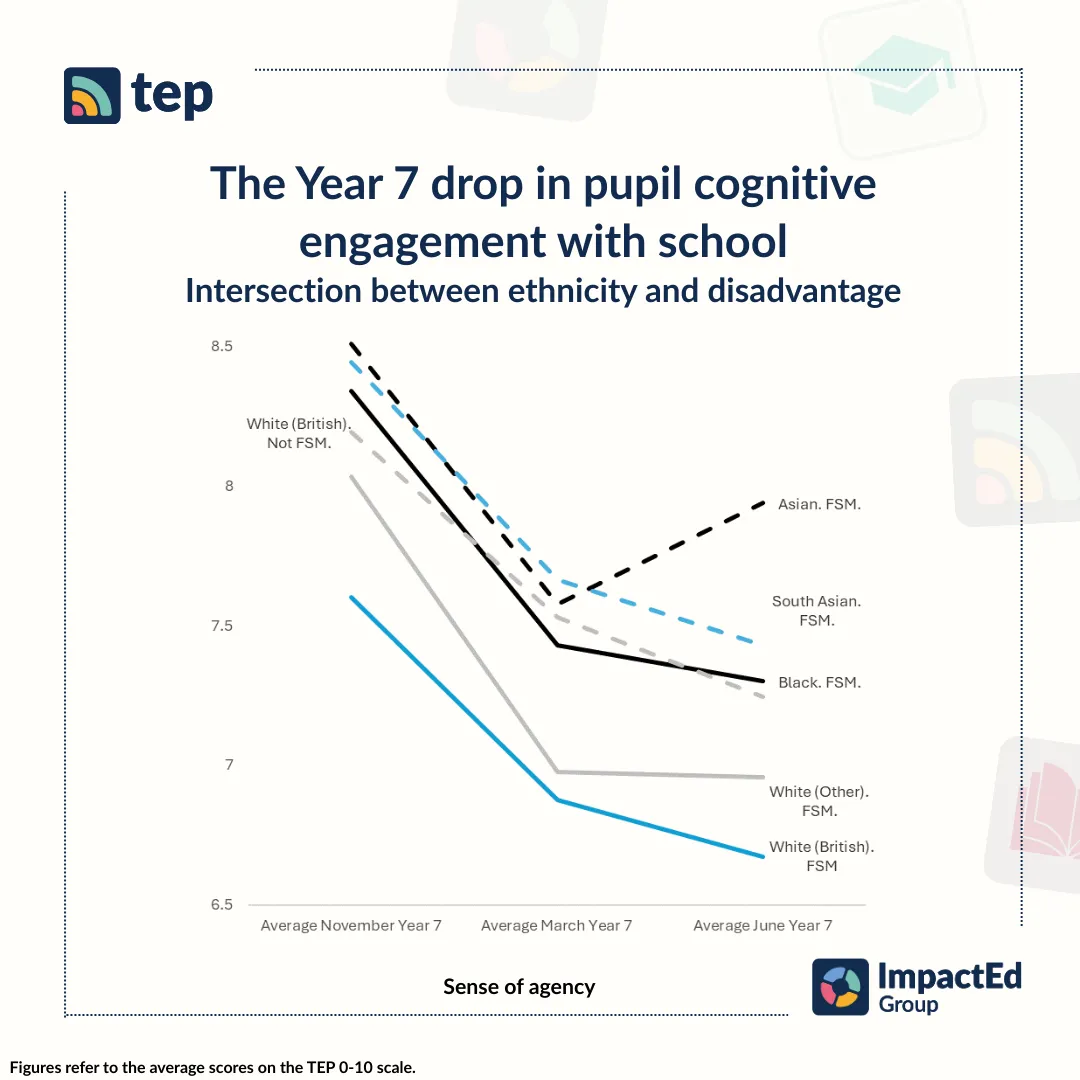Few groups in England’s education system attract as much attention as low-income White children (LIWC). Much of the discussion focuses on academic outcomes, but new research from Professor John Jerrim (TEP & ImpactEd Group Research Director) takes a step back to ask a more fundamental question: how engaged are LIWC throughout school, and what can we learn from the data?
Drawing on responses from over 70,000 pupils via The Engagement Platform, this study is the largest of its kind in England. The report reveals that LIWC are among the least engaged pupils across multiple measures and often begin secondary school at a disadvantage.
The TEP dataset not only captures the headline engagement of pupils in school, but also looks at how much young people value school, how much effort they put in, and whether they enjoy being there.
The key insights of the research
In Professor Jerrim's analysis of the data for low-income White children, we see the following trends:
- Cognitive engagement: Almost a quarter of LIWC pupils do not feel that effort leads to better grades. Low-income White girls report the lowest interest in lessons of any group.
- Emotional engagement: Enjoyment of school is comparatively low, with LIWC scoring just 2.6/10, compared to 3.7 for disadvantaged Asian pupils and 3.4 for disadvantaged Black pupils. Girls are the most disaffected.
- Behavioural engagement: Around half of LIWC pupils report working hard at school, compared to roughly 70% of disadvantaged South Asian pupils. Homework completion is also highlighted as a challenge.

The report notes that LIWC begins secondary school less engaged than many of their peers, suggesting that early support may be particularly important. Engagement patterns also differ by gender, indicating that tailored approaches could be beneficial.
Having access to this kind of data can help schools identify potential issues earlier, supporting timely interventions before disengagement contributes to poorer outcomes.
Read the full report here.

.webp)





.png)

